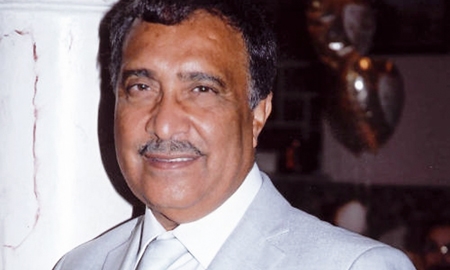The largest country on the African continent, covering an area almost ten times the size of the UK , Algeria has a unique geographical diversity spanning fertile lands, mountain peaks and steppe plains buffering desert spread.
“We are facing some serious challenges in the next few decades,” says Cherif Rahmani, the former Minister of Land Management and the Environment. “First we have the demographic challenge of a new generation needing more jobs, services and rights. Second is the economic challenge: we want to be open to globalisation whilst avoiding its negative impact, turning it to our advantage. Third there is an ongoing depletion of natural resources, not only energy resources, but also soil and water. Plus there is the worldwide political challenge of global warming.”
We want to be open to globalisation whilst avoiding its negative impact, turning it to our advantage. CHERIF RAHMANI, former Minister of Land Management and the Environment |
In 2010, the government released the National Scheme for Land Management (SNAT) to confront those challenges with a policy framework for nationwide sustainable development that is socially inclusive and environmentally sensitive. Amongst others aims, it outlines the need for wider access to ICT, the creation of economic zones with appropriate infrastructure, modernising transport networks and the development of logistic platforms
The government has established various regional hubs that will focus on specific sectors. The new town of Sidi Abdallah will concentrate on ICT, biotech, health, medicine and pharmaceuticals, as well as nanotechnologies, robotics and laser development. Boughezoul, in the steppe, has been designed to moderate its energy consumption and Hassi Messaoud is focused on renewable energies, while Algeria’s Sahara region is, naturally, based around the solar power industry.
Last December, Algeria became the third country to sign up to the Desertec Industrial Initiative – a German-led vision of a network of renewable energy plants across North Africa, harnessing both solar and wind sources and exporting electricity to Europe. By 2050, Desertec aims to be supplying 15 per cent of all the EU’s electricity demands from projects in the Sahara.
In May, the National Council of Investment (NCI) assigned the National Agency of Intermediation and Land Regulation (ANIREF) to set up 42 new industrial zones nationwide that will be fully ready by 2017 and be to international standards of infrastructure.
The creation of regional focus points and industrial zones is also part of the government’s drive to encourage the creation of more small and medium-sized enterprises (SMEs) and spur widespread socioeconomic growth for Algerians.
“We cannot have harmonious, balanced growth without good human resource management,” says Mr Rahmani. “That is why we are placing the citizen at the heart of our sustainable development and land management.”
The European Commission made 45 million euros (£36 million) available in 2009 through its MEDA II programme to help Algerian SMEs sharpen their international edge. In 2010 the government introduced an SME competitiveness plan targeting the creation of 20,000 SMEs with a budget of 380 billion dinars (£3.1 billion) of public resources to be distributed via direct funding and reduced bank loan interest rates for SMEs to improve their access to finance.
“The Algerian market has a size that is not found anywhere else on the continent,” says Abderazak Trabelsi, President of the Banks and Financial Establishments Association, ABEF. “People talk of Nigeria, but it is not the same. Algeria holds something unique: there are few countries that can present both great potential and opportunities at the same time.”

0 COMMENTS